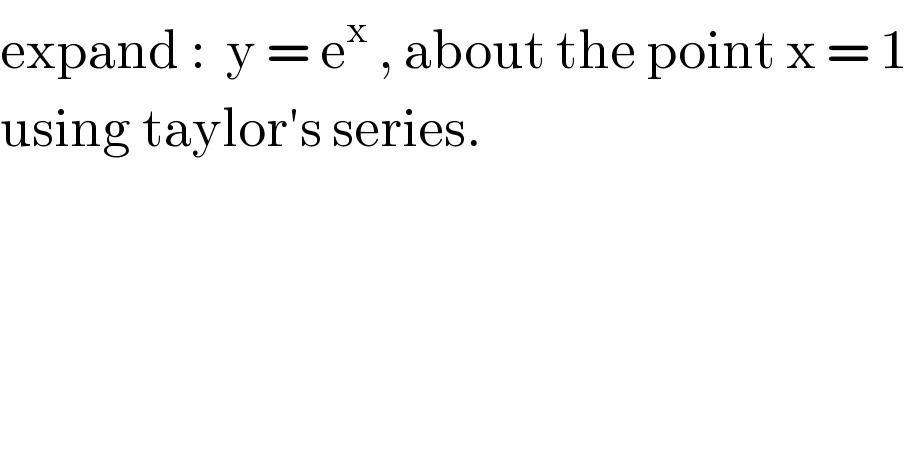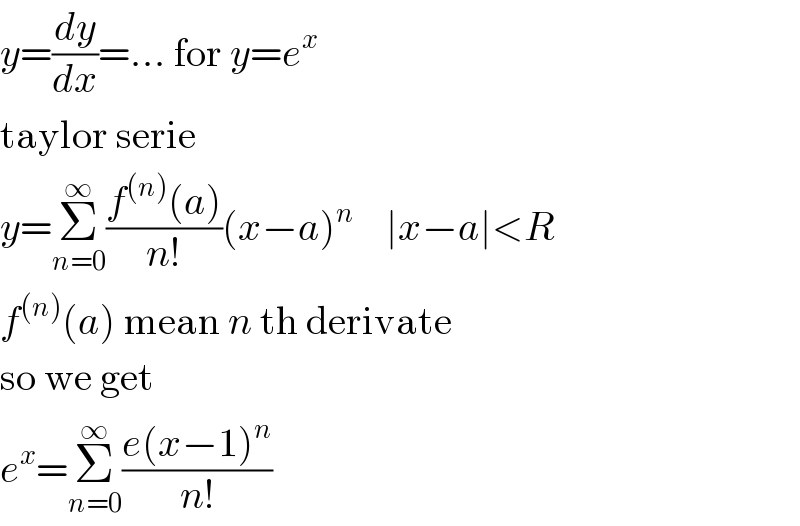
Question Number 9400 by tawakalitu last updated on 04/Dec/16

$$\mathrm{expand}\::\:\:\mathrm{y}\:=\:\mathrm{e}^{\mathrm{x}} \:,\:\mathrm{about}\:\mathrm{the}\:\mathrm{point}\:\mathrm{x}\:=\:\mathrm{1} \\ $$$$\mathrm{using}\:\mathrm{taylor}'\mathrm{s}\:\mathrm{series}. \\ $$
Answered by 123456 last updated on 04/Dec/16

$${y}=\frac{{dy}}{{dx}}=...\:\mathrm{for}\:{y}={e}^{{x}} \\ $$$$\mathrm{taylor}\:\mathrm{serie} \\ $$$${y}=\underset{{n}=\mathrm{0}} {\overset{\infty} {\sum}}\frac{{f}^{\left({n}\right)} \left({a}\right)}{{n}!}\left({x}−{a}\right)^{{n}} \:\:\:\:\mid{x}−{a}\mid<{R} \\ $$$${f}^{\left({n}\right)} \left({a}\right)\:\mathrm{mean}\:{n}\:\mathrm{th}\:\mathrm{derivate} \\ $$$$\mathrm{so}\:\mathrm{we}\:\mathrm{get} \\ $$$${e}^{{x}} =\underset{{n}=\mathrm{0}} {\overset{\infty} {\sum}}\frac{{e}\left({x}−\mathrm{1}\right)^{{n}} }{{n}!} \\ $$
